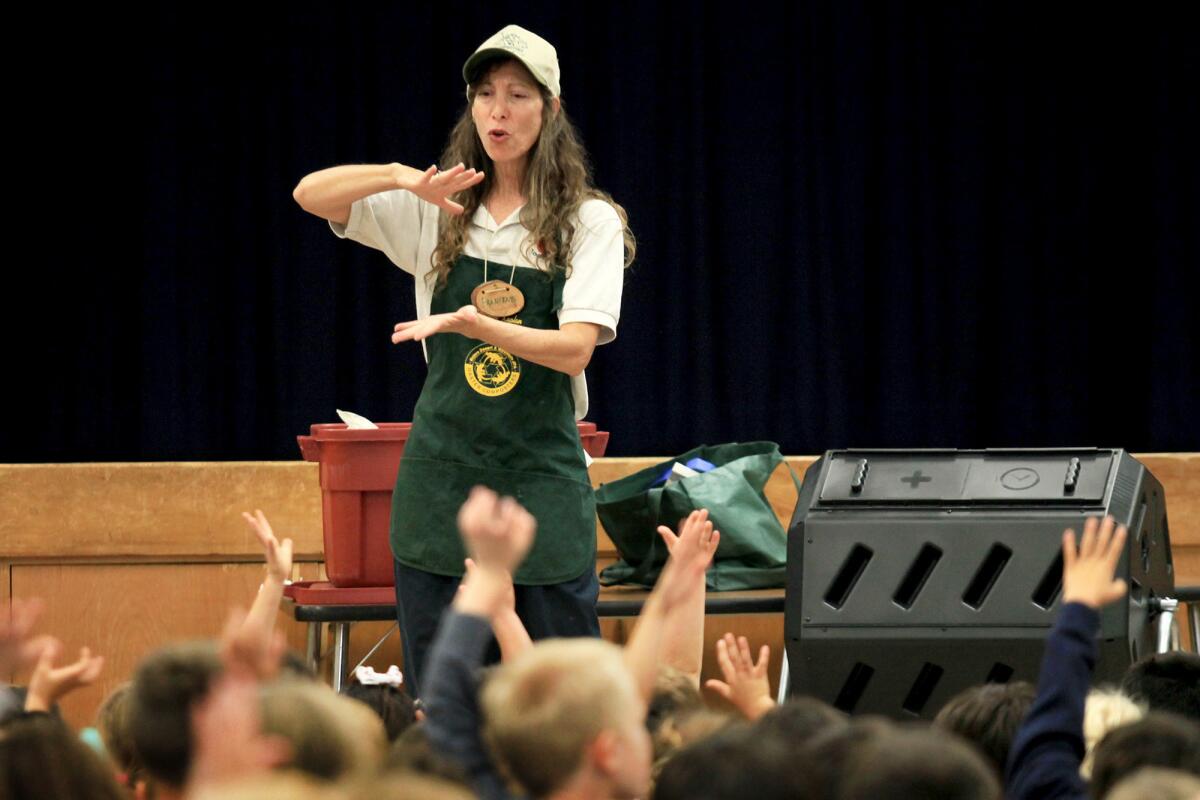Composting converts

A donation by the Costa Mesa Sanitary District inspired a group of kindergarteners at Woodland Elementary to keep their class gardens healthy by composting.
Francene Kaplan, a contractor with the Sanitary District, presented the $30 composting bin to the kindergarten classes during an assembly Thursday morning.
Composting uses decaying organic matter, like leaves, vegetable peels, worms and even coffee grounds, to improve soil structure and provide nutrients to a garden.
Each of the seven kindergarten classes, roughly 168 students, have planted and maintained gardens annually for the past two years, said kindergarten teacher Kelly Siegel.
The 5- and 6-year-olds plant vegetables like carrots, green beans, lettuce, radishes and kale, as well as herbs, and take care of the plants until they are ready to be harvested near the end of the school year. After the harvest, teachers and parent volunteers make vegetable soup and create a salad bar for the students, she said.
“It goes along with our science curriculum, where we talk about living things,” she said. “The kids love it. They get really excited about it.”
After seeing a composting flier from the Sanitary District, Siegel decided to learn more about the process and involve her students.
The students will begin composting within the next few weeks by shredding items like paper and peels and storing them in a composting bin. The bin is equipped with air holes that allow water and air to move through it, Kaplan said.
The process takes two to eight weeks and produces a substance that looks like black, moist soil.
“Composting is nature’s way of recycling,” she explained to the assembled kindergarteners. “It’s food that you don’t eat that can be recycled.”
Cameron Deisner’s eyes widened as Kaplan pulled a large worm from the compost material during the assembly.
The usually mellow 5-year-old spoke excitedly as he described his role in the gardening process.
“I dug a hole with my shovel and put carrot seeds in there,” he said. “Carrots are my favorite.”
Cameron said he’s looking forward to the time when the vegetables are ready to be gathered.
Siegel hopes the activity will foster her student’s curiosity and love of nature.
“Recycling is a big part of our curriculum in kindergarten,” she said. “I want them to stop and think, ‘Wait, can I compost this or do I have to throw this away?’”